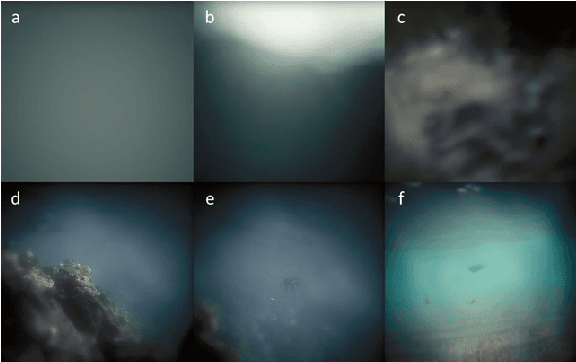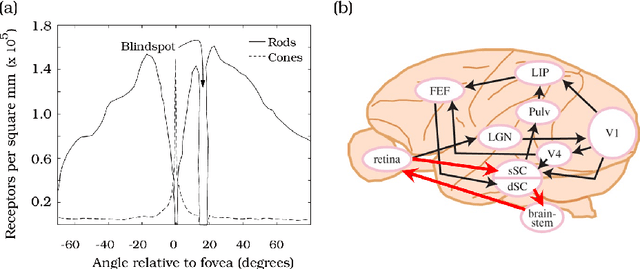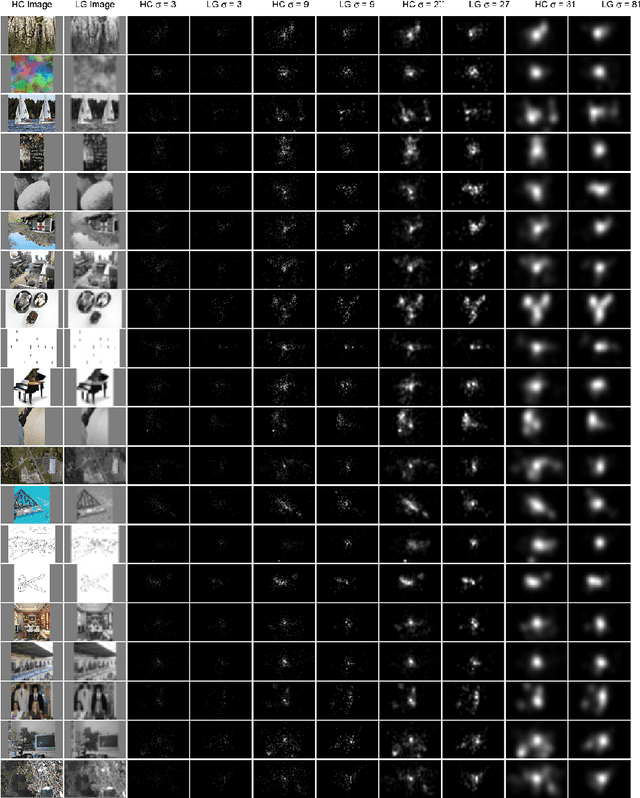Saliency Preservation in Low-Resolution Grayscale Images
Paper and Code
Mar 27, 2018



Visual salience detection originated over 500 million years ago and is one of nature's most efficient mechanisms. In contrast, many state-of-the-art computational saliency models are complex and inefficient. Most saliency models process high-resolution color (HC) images; however, insights into the evolutionary origins of visual salience detection suggest that achromatic low-resolution vision is essential to its speed and efficiency. Previous studies showed that low-resolution color and high-resolution grayscale images preserve saliency information. However, to our knowledge, no one has investigated whether saliency is preserved in low-resolution grayscale (LG) images. In this study, we explain the biological and computational motivation for LG, and show, through a range of human eye-tracking and computational modeling experiments, that saliency information is preserved in LG images. Moreover, we show that using LG images leads to significant speedups in model training and detection times and conclude by proposing LG images for fast and efficient salience detection.
 Add to Chrome
Add to Chrome Add to Firefox
Add to Firefox Add to Edge
Add to Edge